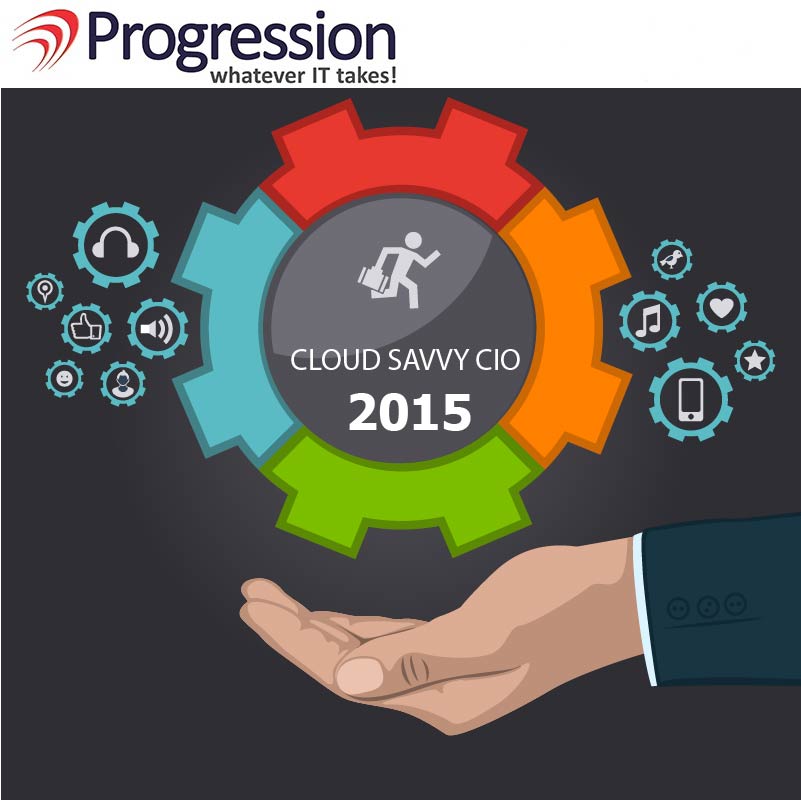The past few years have been about Cloud: hype and hoopla, growth and confusion, price cuts and commoditization.
And 2015 will also be about Cloud. But we think this year will be different. This year, CIOs and heads of IT departments will emerge far savvier about cloud adoption than they have ever been.

There is a reason for it. The initial waves of cloud adoption are now well and firmly behind us, and as companies gear up to renew their 2-year and 3-year contracts with cloud service providers, they are uncovering issues they were only vaguely aware of, so far. And now as they understand the import of those issues, they will turn savvier and stricter about how they want their Cloud deployments.
Here are the ways in which this shift is happening.
1. Where’s my DR when I need it? Many companies who opted for multi-year managed services contracts also had opted for Disaster Recovery. This was usually said to be located at the service provider’s near-site or remote data centers. Unfortunately, since no DR drills ever happened, CIOs never really found out if the DR setup existed as defined in the contract, or if it did, would it work when the need arose. Progression is currently helping several such companies set up smooth DRaaS operations. These companies found out the hard way that while they were promised DR by their service providers, they had little to show for it when faced with primary site downtime.
In 2015, more CIOs will find this out when they face unprecedented downtime, as many cloud service providers do not follow DRaaS best practices, nor do they have the expertise to get the mission critical applications up within the RPO and RTO needed by the business.
We expect CIOs to now ask cloud service providers some hard questions and demand frequent DR drills in 2015.
2. Could I please have my data back? As multi-year IT outsourcing contracts come to a close, many IT teams are horrified to find that their ERPs or other business critical applications are running on shared databases at the service provider’s data center. Yes, read that again, SHARED DATABASES. And since it’s shared, they can’t have their data back. That means, customers once in, are locked in, for good.
We expect to see many CIOs facing this situation in 2015, and we expect to be solving this challenge for them.
Progression believes in transparency, and doesn’t believe in locking in a customer by shady practices. We believe in keeping a customer happy with great support and managed services.
3. The low price was just not worth it! IT teams of companies who joined the cloud bandwagon, or the commodity cloud just because of the ridiculous prices will learn that it all came at a price; something that the business could barely afford: Downtime. IT teams and CIOs will learn that their commodity clouds are their own responsibility, and there is no one to really help them out at the commodity cloud service provider’s. And if there is somebody, there is a huge price to pay.
4. I am not in control? CIOs will learn that their managed services provider keeps the inhouse IT team away from basic things like root access to databases and servers, leaving them feeling helpless and not in control. And as some companies started discovering in 2014, their service providers had not even been performing critical hygiene activities (ensuring databases are updated and synced, for instance), many more will find such negligence coming their way.
CIOs will know that this is not what they signed up for. And going forward they will put in clauses which mandate access, transparency and accountability.
The era of hype and hoopla is over. The industry has seen cloud deployments, and not everyone has had a happy experience. And the key learnings from these unhappy experiences will lead to savvier CIOs leading successful cloud deployments in 2015. The good news is that CIOs have a choice, to go with expert Managed Cloud service providers like Progression.
And the flavor will be clearly Managed Cloud.


